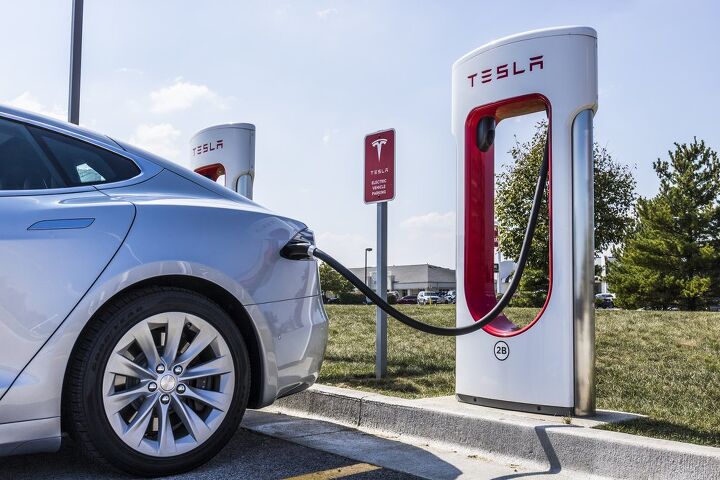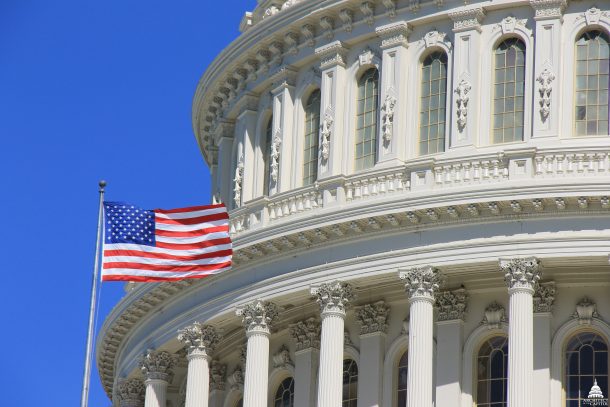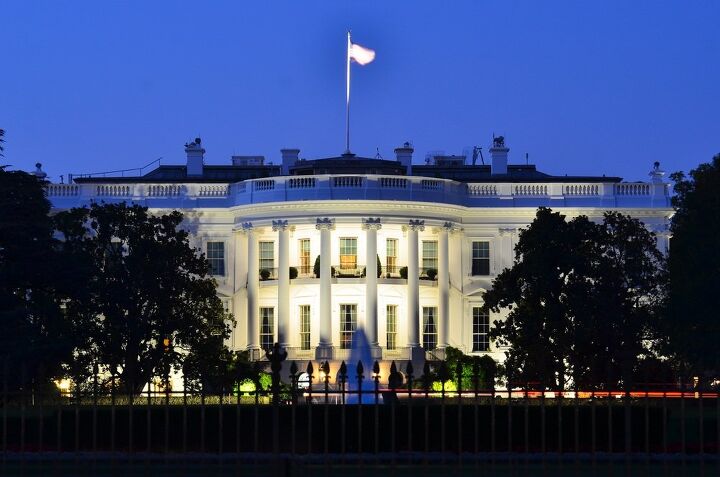#WhiteHouse
White House: Tesla to Open Charging Network Under Federal Program
On Wednesday, the Biden administration announced that Tesla will begin opening up portions of its proprietary charging network to all electric vehicles by the end of 2024. While the move could undermine one of the most desirable aspects of owning a Tesla, by forcing owners to share what’s likely to be the largest and most reliable charging network in the country, the EV purveyor isn’t coming away empty-handed. The arrangement comes under a new $7.5-billion federal program to electrify the nation's highways stemming from the $1-trillion infrastructure package signed in 2021.
USPS Doubles EV Purchase After Public Pressure
We’ve been hearing about the new USPS mail trucks for what seems like years, but the government agency is only just getting into the ordering process for the funky delivery vehicles. Earlier this week, the USPS stated that it would double the number of electric delivery vehicles it would order, following pushback from the White House and the public.
White House May Propose Gas Tax Holiday [Updated]
National fuel prices are currently averaging right around $5.00 per gallon in the United States. However, there are plenty of states with stations listing gasoline well above $6.00 per gallon with diesel being driven even higher. This has started to wreak havoc on the trucking industry, which is now seeing companies pausing shipments to renegotiate contracts, and infuriated consumers who remember a gallon of gas being $2.17 during the summer of 2020.
Earlier this year, Congress and the White House suggested suspending the federal fuel tax to alleviate the financial burden. But the notion was walked back, as prices were relatively low at the time (roughly $3.50 per gallon) and criticisms swelled that this simply exchanged one problem for another. Four months later and things are looking rather desperate, with the Biden administration revisiting the premise of pausing fuel tax to help soften the blow of record-breaking prices at the pump.
Biden Admin Proposes Minimum Standards for EV Charging
With the Biden administration hoping to transition the United States toward all-electric vehicles, it has set a goal of commissioning the construction of a nationwide network of 500,000 EV charging stations by 2030. But saying you’re going to do something as part of a $1-trillion infrastructure plan is a lot easier than actually doing it because there are a lot of steps that have to be taken before a plan can effectively be put into action. This is called planning and it’s something the government occasionally engages in to ensure a program is successful. As such, the Biden administration is issuing a series of standards and requirements for federally funded electric vehicle charging stations.
“To support the transition to electric vehicles, we must build a national charging network that makes finding a charge as easy as filling up at a gas station,” said U.S. Transportation Secretary Pete Buttigieg. “These new ground rules will help create a network of EV chargers across the country that are convenient, affordable, reliable and accessible for all Americans.”
UAW & Green Lobby Sue USPS Over Not Prioritizing EVs
On Thursday, The UAW and a group of environmental groups based in the United States filed numerous lawsuits in an effort to block the U.S. Postal Service (USPS) from moving forward with plants to purchase gasoline-powered next-gen delivery vehicles (NGDVs) from Oshkosh Defense. The suits are being launched on the grounds that the USPS failed to comply with environmental regulations and went back on an earlier promise to field all-electric variants.
They’re supported by the White House — which launched an initiative to convert the entire federal fleet into battery electric vehicles last year — and congressional Democrats that were angered after the Postal Service went against the Biden administration’s request to prioritize EVs. The president and the Environmental Protection Agency (EPA) even went so far as to request that the USPS to hold off on the $11.3 billion contract with Oshkosh so electric options can be reevaluated. However, Postmaster General Louis DeJoy has repeatedly stated that it’s not realistic to field a significant number of electric vehicles and that the mail service would need additional funding from the government to consider such a move.
California Proposal Calls for 68 Percent EV Sales By 2030
Now that the U.S. Environmental Protection Agency (EPA) looks poised to reinstate California’s waiver under the Clean Air Act — allowing the state to establish stricter tailpipe emissions than the federal limits — the coastal region has resumed its quest to abolish gasoline-powered vehicles in earnest. While the California Air Resources Board (CARB) has yet to finalize all the details, the latest proposal calls for strengthened emissions standards for new light-duty vehicles in anticipation of the necessary approvals.
The scheme would require pure electrics and plug-in hybrids (PHEVs) to make up 35 percent of new-vehicle sales for the 2026 model year. By 2030, that number will become 68 percent before hitting 100 percent for MY 2035. CARB said zero-emission vehicles comprised 12.4 percent of the state’s new market in 2021, hinting that the number could have been higher without the Safer Affordable Fuel-Efficient (SAFE) Vehicles Rule Part One having stifled its progress.
Biden Administration Meets With Auto Execs, Including Elon Musk
The Biden administration held another meeting with automotive executives about how to ensure electric vehicles go mainstream. But this time it included Elon Musk, who runs the most successful EV brand in the entire world.
After taking criticism for shunning the Tesla CEO in earlier meetings, senior officials held an event on Wednesday where he and other industry leaders could contribute as to how the United States should handle a national charging infrastructure and spur adoption rates. Despite Musk having often expressed a dissenting opinion in regard to President Biden’s strategy, the White House said that the meeting was productive and resulted in a “broad consensus that charging stations and vehicles need to be interoperable and provide a seamless user experience, no matter what car you drive or where you charge your EV.”
Drama: Elon Musk Dares UAW to Hold Union Vote in California
Tesla CEO Elon Musk has invited the United Auto Workers (UAW) to hold a union vote at the company’s facility in Fremont, California. While this may fool you into believing the executive has had a change of heart in regard to unionization, Musk seems to be inviting the labor group into a trap to dunk on his political enemies.
It’s no secret that there’s been bad blood between Tesla and the Biden administration. The White House has repeatedly left the automaker out of its discussions pertaining to industry regulation and proposed additional financial incentives for automakers using unionized labor to build electric vehicles. As the world’s largest purveyor of EVs by far, Musk believes his organization deserves some acknowledgment and has noted that the UAW is one of the Democratic Party’s staunchest allies. He’s asking for the vote in Fremont because he clearly thinks it will fail.
U.S. Postal Service Decides to Snub Electric Vehicles
The United States Postal Service (USPS) has been under pressure from the White House to replace its aging fleet with all-electric vehicles. But it’s looking like mail carriers will continue doing their jobs in oddly shaped trucks that burn gasoline.
While the Biden administration’s green agenda calls for government fleets to begin transitioning to EVs, the USPS had already decided to purchase 165,000 examples of the Oshkosh Defense NGDV that’s dependent upon liquid fuel. Despite the contractor saying trucks could be converted into battery electric vehicles and/or hybrids, the vast majority will be wholly reliant on internal combustion. The USPS has decided that it’s just not cost-effective or practical to do anything else and no amount of pressure from the White House will be changing its mind.
Money on the other hand…
Suspending Federal Fuel Tax Pitched By Senate, White House
President Joe Biden and Democratic lawmakers have suggested ending the federal gas tax until 2023 as a way to offset fuel prices that are nearing record levels and possibly appease some on-the-fence voters ahead of midterm elections. Senators Mark Kelly (D-AZ) and Maggie Hassan (D-NH) recently pitched the bill in Congress. While the White House has not made any official endorsements, it’s offered tacit support by saying it didn’t want to limit itself in terms of finding new ways of easing the financial burdens Americans are facing during a period of high inflation.
“Every tool is on the table to reduce prices,” White House assistant press secretary Emilie Simons said in regard to a possible gas tax holiday. “The president already announced an historic release of 50 million barrels from the Strategic Petroleum Reserve, and all options are on the table looking ahead.”
Biden EPA Tells USPS More Mail Trucks Should Be EVs
Last spring, the United States Postal Service announced that it would finally be replacing its fleet of Grumman Long Life Vehicles (LLVs) that have more than lived up to their name. Having entered into service in 1987 to replace the Dispatcher Jeep, the LLV is scheduled to be replaced by 150,000 new mail trucks from Oshkosh Defense. While the government originally wanted to use an all-electric platform, it was believed that rural routes probably required an internal combustion vehicle. Preexisting government contracts with Oshkosh likely made it a compelling manufacturer, though it annoyed some of the smaller candidates. Workhorse even sued the USPS last summer for not selecting its hideous entrant, though the official complaint was that the government hadn’t given EVs a fair shake.
That now appears to be changing because the Biden administration and Environmental Protection Agency (EPA) have asked USPS to hold off on the $11.3 billion contract with Oshkosh so electric options can be reevaluated.
White House Invites Auto Execs to Endorse Build Back Better
The White House has made plans to host American business executives — including numerous CEOs tied to the automotive sector — in an effort to gain support for the stalled Build Back Better agenda. The meeting is scheduled to take place today, with President Joe Biden and company hoping to convince them to get behind the (revised) $1.75 trillion spending bill after it passed in the House but never made it through the Senate.
Seats have already been reserved for General Motors CEO Mary Barra, Ford CEO Jim Farley, and Cummins CEO Tom Linebarger. The rest are going to heads of manufacturing and technology companies, with a few noteworthy outliers. For example, the Biden administration has also invited the president of the Teachers Insurance and Annuity Association of America and the CEO of Siemens (a multinational entity that’s not based in the United States). Based on earlier statements from White House press secretary Jen Psaki, the meetings will take place in-person, bucking the Biden administration’s trend of hosting virtual events.
Biden Executive Order to End Gasoline Powered Vehicle Purchases
On Wednesday, President Joe Biden signed an executive order committing the United States to the acquisition of only zero-emission vehicles by 2035 for the federal vehicle fleet.
This is totally in line with the administration’s stated desire to focus on transitioning the nation toward renewable energy sources while advancing electric vehicle adoption rates. But the event was curiously not celebrated with the applicable fanfare. Biden signed the document without media there to capture the moment and reporters failed to ask about it during a press event on the White House lawn later in the day. Were it not for an official fact sheet issued by the administration later in the day, we may never have known there even was a signing.
Report: Biden Admin May Link Semiconductor Subsidies to Unions
Despite the semiconductor shortage having encouraged the automotive sector to repeatedly idle factories, word on the ground is that things are becoming more stable. Companies are seeing less production downtime overall and workers are reporting more reliable working conditions across the board. However, several automakers have continued to express concerns (e.g. Volvo), alleging that chip shortages could stretch deep into 2022, while the U.S. government ponders how to advance chip production in-country and become less dependent on Asian suppliers.
Commerce Secretary Gina Raimondo has been touring Michigan, meeting with union members and industry heads, and plans to urge Congress to move on a $52 billion in funding bill aimed at boosting domestic production. We’ve questioned the efficacy of the CHIPS Act before, primarily in relation to how the subsidies would be allocated. But there are new concerns that the plan will mimic the Biden administration’s EV subsidies by spending heaps of taxpayer money and giving union-backed organizations a larger cut.
Automakers Accused of Chip Hoarding, U.S. Considers Defense Production Act
Despite the occasional media report claiming that the semiconductor shortage is nearly over, reality looks quite a bit different. Some manufacturers have managed to temporarily stabilize supply chains, even though others have continued announcing work stoppages as they run out of chips. Wait times for the electronic components have also increased by about 61 percent since the beginning of 2021. Meanwhile, a recent Kelly Blue Book survey had 48 percent of respondents saying they were going to postpone buying a new automobile until shortages end, prices come down, and they can actually find the vehicles they’re looking for. But even those that were willing to buy now expressed a surprising level of acceptance to abandon brand loyalty or their preferred body style just to get a fairer deal on an automobile.
With the United States fairing worse than other regions in regard to chip availability, the White House has been under pressure to solve the problem all year. Thus far, government strategy has focused on encouraging investments for new semiconductor production. But there’s a new gambit being proposed that would invoke a Cold War-era national security law that would force manufacturers to furnish information pertaining to semiconductor supply lines and chip sales.





![White House May Propose Gas Tax Holiday [Updated]](https://cdn-fastly.thetruthaboutcars.com/media/2022/07/10/8870350/white-house-may-propose-gas-tax-holiday-updated.jpg?size=720x845&nocrop=1)





















Recent Comments